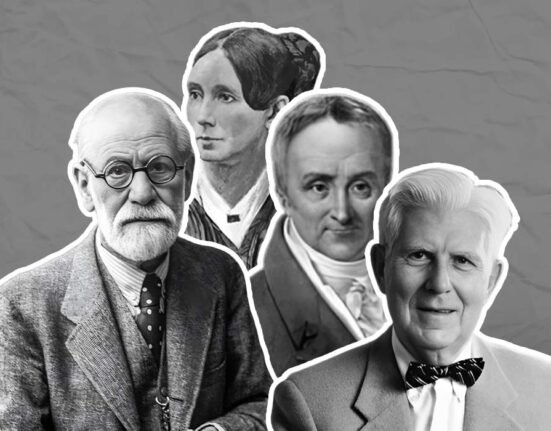Elite athletes are those athletes that perform at collegiate levels, professional levels and at the Olympics. Being an athlete comes with its own set of pressures and stressors. General athletes and elite athletes both undergo extensive physical training and support however mental support is lacking and incidences of athletes with psychological disorders are rarely recognized and often stigmatized. There have been many studies that have been done on the elite athletes and their mental health and the studies have shown that being ranked among the very elite athletes is related to an increase in susceptibility to depression, particularly in relation to a failed performance. Studies also show that athletes of certain sports have a higher prevalence of eating disorders and that world-class athletes have a higher level of both trait and state anxiety as compared to other athletes.
Sporting culture generally rewards toughness and is not a space wherein it is easy to talk about mental health. Athletes are supposed to and expected to have strong mental health so as to perform better however there is not much attention and support given to athletes when their mental strength does not live up to the expectations of others. The athletes are expected to perform in certain manner and failing to do so often puts them under extremely critical eyes. Athletes also criticize themselves a lot and are known to have high standards for themselves which makes it harder for them to accept defeat and to accept that their mental health may not be at its best.

Although there are other biological, psychological and social factors that play a role in the mental health of the athletes, the discrepancy between the ideal and real self greatly affects the athlete.
There are multiple factors that culminate together and slowly lead to the deterioration of the mental health of the athlete. These include stress, coping strategies, anxiety and burnout etc. The role of anxiety in sports is varied and is often considered to be a motivating factor of sorts as well.
It is believed that a certain level of anxiety is beneficial and motivates the athletes to perform better and give in their all however nothing in excess is ever good and often athletes are unable to live alongside their anxiety and it starts to interfere in their lives in the ways they feared it would like lower performance and inability of the body to move in ways that the athlete may be wanting it to. Performance anxiety is one kind of anxiety that is often found a lot among elite athletes. Although It is known that some degree of tension adds electricity to the performance however pessimist self-talk and feelings of panic can severely affect it.
The way people deal with stress is different for different people. Although the social environment that you have been brought up in and exist in presently does play a role in the way you deal with stress, your own personality has a huge influence on it too. Even the coping strategies of people are different despite being influenced by their social environment. The way one person interprets a situation may be completely different to the way someone else interprets the same situation likewise what may be a negative stressor to one may not even be a stressor to another. There are a lot of behavioral and personality-based differences which differentiates athletes and elite athletes from the general public and also differentiates the general athletes from the elite athletes.
There are a lot of elite athletes that suffer from burnout. The elite athletes have a lot of pressure and possible stressors in their environment. The environment of the elite athlete is extremely competitive and there is a cut throat competition all the time. Although hard work and perseverance goes a long way, talent also has a huge role. In sports, one may spend multiple hours and still not be good while someone else may practice only one hour everyday and may still be very good. There are a lot of stressors that come with being an elite athlete. Unlike other occupations, in sports age is a very important factor. Age is very important for athletes as they retire early and do not get as many years as people in other occupations do to get promoted. Reaching the higher level is a contestant struggle and among the various factors the age of the individual also adds as a major stressor.

It is a known thing that when someone is undergoing certain kinds of psychological interventions due to detoriating mental health issues, they are often advised to work out and sweat it out. Exercising the body and tiring oneself out physically not only helps distract the mind from fixating about certain issues but also helps clear the mind and release the built-up pressure and let go of certain unwanted thoughts.
However, for athletes working out and playing the sports that they are affiliated with can often be triggering, especially in competitive environments. Sports can protect people from depressive disorders in their leisure time, but it can also create additional stress in the professional performance sector.
It is important that people start to spread awareness and educate themselves about the lives of the elite athletes and to understand that they too are humans and thus they should be protected ad supported if their mental health is not at its peak. Suffering because of the detoriation of mental health issues is not something to be embarrassed about and hide. Being mentally ill does not mean that you are a weakling who can no longer do what you wish to do. Even when athletes realize that they are in a slump, they do not always seek for help. Often because of the slump athletes end up retiring way earlier than they would have otherwise. Someone could have immense potential but because of their inability to stand up for themselves and ask for assistance when they needed it, they may end up reaching the end of their career pretty early in life.
The elite athletes should be introduced to sports psychologists and should be given the support that they may need if things do not turn out the way they wished it to go . The organizations that the athletes are part of should all come together and come up with certain programs and sessions with sports psychologists that may benefit the athletes and may help them gain the confidence and also build trust among themselves. The most effective psychological treatments seem to be those that combine relaxation training with anxiety inoculation and cognitive restructuring.













Leave feedback about this